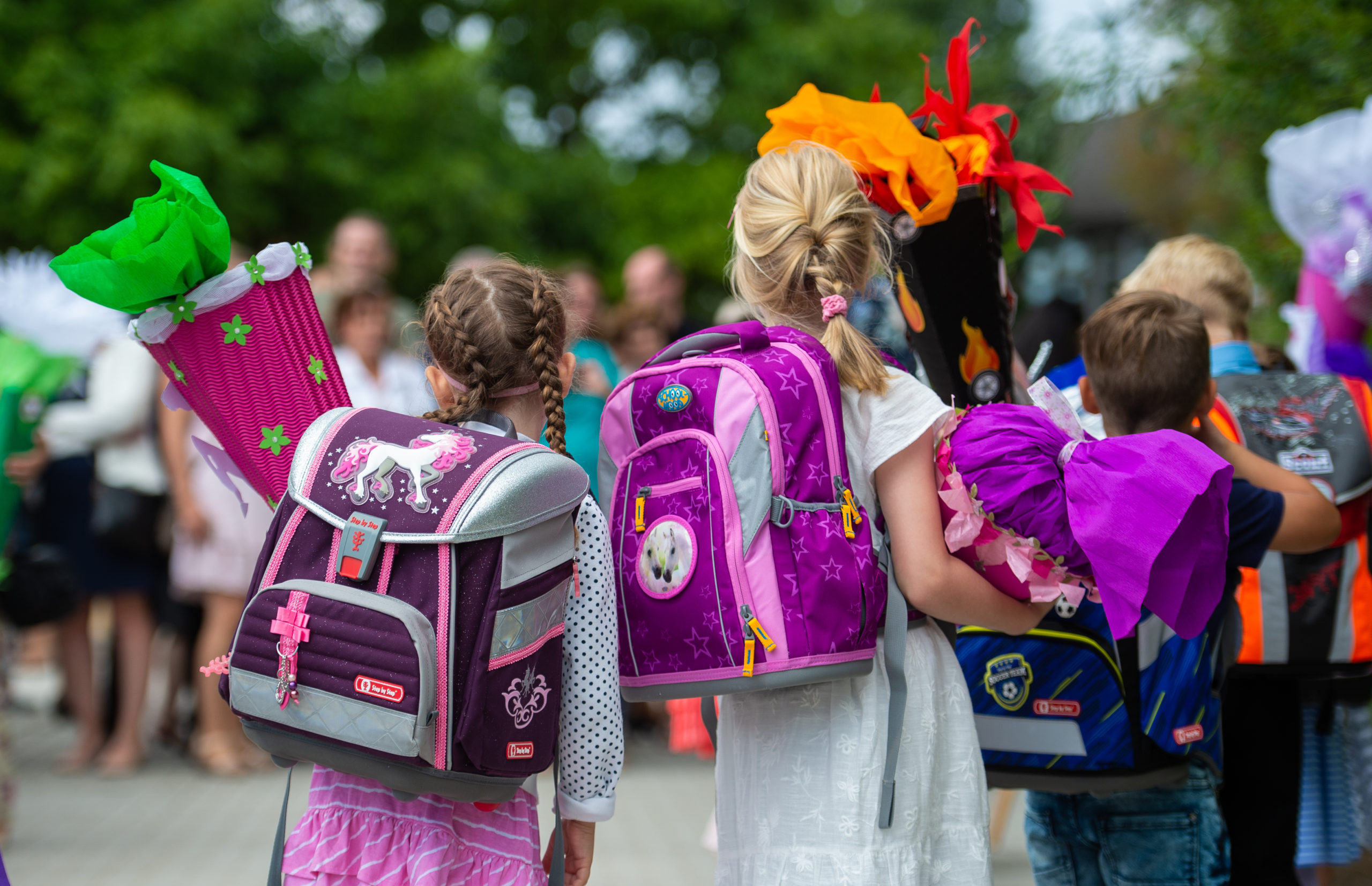When foreign parents send their children to German primary schools, they often come back with a whole new vocabulary of playground slang. Here’s our guide to the main terms to know.
Children all over Germany are going back to school at the moment – or starting school for the very first time. For the international parents of children at German schools, this often means coming to grips with a slew of new words that describe a completely unfamiliar world.
Arguably, by the time children reach their teens, parents have little chance of being able to understand them anymore regardless of how good their German is (largely because this is how most teens prefer it).
But with younger children at least, parents still have a chance. From Fangen to Spagat and Tadel, here’s our guide to what’s really going on in the classroom and out in the schoolyard.
Playground games
Fangen (“to catch”) is the German equivalent of “tag” or “it” and probably the most popular game in the primary school playground.
Before the game starts, you might hear kids competing to see who can be first to say the word Ausgebucht (fully booked).
READ ALSO: What foreign parents really think of schools in Germany
The last to say Ausgebucht is the first to be “it” in the game, or the first der dran ist.
Variations on Fangen include Feuerfangen and Kettenfangen; both games in which the number of children who are “it” steadily accumulates.
In Feuerfangen, anyone who is “tagged” or gefangen also becomes a catcher along with the original catcher. In Kettenfangen, the catchers are obliged to hold hands.
Another popular game is Räuber und Gendarm (cops and robbers), a mixture of Fangen and Verstecken (hide and seek) in which a designated group of police have to catch a designated group of robbers and bring them to a particular location (the knast or prison).
Advertisement
Robbers can then free their comrades from prison by reaching them ahead of the police.
During PE lessons, one of the most popular games in German schools is 2-Felderball (dodgeball).
Originally called Völkerball in Germany, the game has recently been renamed in order to avoid encouraging children to imagine a word in which two “peoples” are pitted against each other.
Chinesische Mauer is also popular with German PE teachers. The game is identical to British Bulldog, where the catchers have to remain in a line in the centre of the gymnasium while the other children try to run from one end to the other.
Any children caught have to join the line of catchers.
Playground insults
Is bullying or mobbing an inevitable part of school life? It probably doesn’t have to be, but that won’t stop your children from picking up a few choice insults.
At primary school, perennial favourites include ein Heulsuse (cry-baby), ein Angsthase (scaredy cat) and ein Streber (swot or nerd).
KEY DATES: When do children go back to school in Germany?
Children can deflect insults by shouting the word Spiegel (mirror).
Kids in Germany don’t seem to administer physical punishments to each other in quite the same, highly organised way that people who grew up in the UK may remember from school.
For anyone not familiar with these delightful English traditions, as an example, children are often given “the bumps” on their birthday, meaning their classmates grab them by the wrists and ankles and throw them into the air while counting the number of years they’ve been alive. Additionally, on the first of each month, the first child to say “pinch, punch, and no returns” is theoretically allowed to administer said punishment without fear of reprisal, although in practice the slower child retaliates with “a stamp and a kick, for being so quick.”
Advertisement
When German school children do feel the need to hand out a physical “punishment”, however, the most popular means appears to be a Nackenklatscher, or slap on the back of the neck.
A Backpfeife, on the other hand, is a slap on the cheek.
Children at German primary schools are often taught to stand back when they feel threatened, to raise and open one hand and repeat the words: Halt, stopp, ich fühle mich gemobbt (Halt, stop, I’m feeling bullied).
Playground skills

Children carry special bags for their first day of school in Germany. Photo: picture alliance/dpa | Philipp Schulze
Everyone likes to show off their signature moves in the playground – and every child will come home at least once desperate to learn how to do a cartwheel or a forward roll. Here are some of the key terms.
A forward roll is known as a Purzelbaum in German. The more acrobatic forward flip is a Salto and a backward flip is a Flic-flac.
READ ALSO: How to make your German child bilingual
Still on the theme of gymnastics, a cartwheel is a Radschlag, the splits is ein Spagat (apparently from the Italian verb Spaccare meaning “to split”) and a bridge is – unsurprisingly – eine Brücke.
For the parents of football mad kids, the key terms are Tunneln (to nutmeg someone, or pass the ball through their legs). Similarly, under the influence of YouTube, Meg is also growing in popularity in German playground, in the sense of Ich habe ihn gemeggt.
There’s also Jonglieren (to juggle) for “keepie-ups”.
School discipline
As parents we want our children and all their friends to be happy, well-adjusted and popular with their teachers.
Advertisement
Occasionally things can go wrong, however, and it’s good to know the meaning of some words related to school discipline which your children might use when they come home.
Detention (Nachsitzen) is not all that common in German primary schools, but children who persistently misbehave or break primary school rules could well be given a Tadel, a formal reprimand or warning which serves as an official notice to the student and sometimes their parents that their behaviour is unacceptable.
READ ALSO: Germany to set up pension accounts for all children from age 6
Too many Tadeln can result in Schulverweis, or suspension.
What have we missed? If you think there are more key terms parents need to know in order to make sense of what their children tell them about primary school, please let us know in the comments below.








